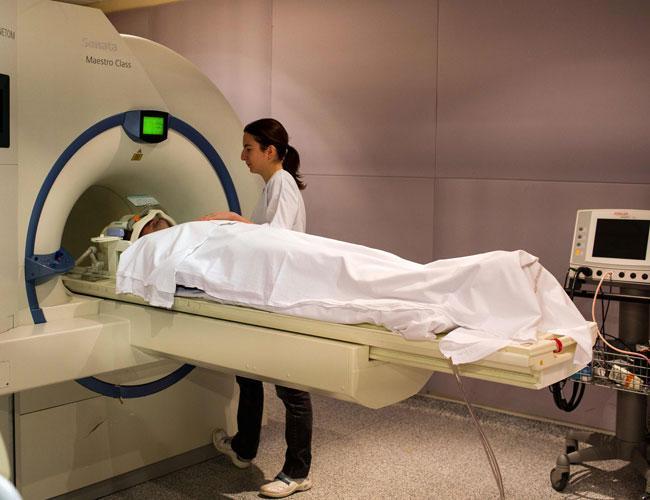
Radiologists are at risk of making mistakes due to the heavy workload they are subject to every day, said Turkish Society of Radiology President Prof. Dr. Tamer Kaya.
“Visual fatigue leads to perceptual fallacy and stops [medical] services from being provided the right way. You cannot read 50-60 MR images in one minute and then write a report. We need even more time to read an already written report,” he said.
Kaya made the comments during the 39th National Congress of Radiology held from Nov. 7-11 in the southern province of Antalya.
“Normally, the number of patients who receive reports should be 30, but when you have 100 patients, only 1-2 minutes are allocated per patient. This pushes our radiologist colleagues into the risk of making mistakes, which is not an acceptable situation. Our patients are deprived of the needed evaluation time,” Kaya said during the congress.
 Out of every 100 radiologists in Turkey, three to five of them are responsible for 300 patients, according to Kaya.
Out of every 100 radiologists in Turkey, three to five of them are responsible for 300 patients, according to Kaya.
“We are even fine with 50-100 patients. We need to set a maximum limit,” he said, adding that some radiologists even quit their jobs because of the heavy workload.
There are about 4,000 radiologists in Turkey. In Europe, there are 15 radiologists for every 100,000 people, whereas this number stands at around five in Turkey. However, Turkish radiologists say the problem stems not from the relatively low number of radiologists, but instead of the unnecessary demands for scans.
According to Health Ministry figures, every year in Turkey, around 12.5 million MR scans, 15 million CT scans and 28 million ultrasounds are performed. The number of images taken by an MRI machine per year in Turkish hospitals is 14,992, whereas the OECD average stands at 5,125.
In Turkish hospitals, a total of 157 MR images are taken for every 1,000 people every year, whereas this figure stands at 67 for OECD countries. Not only does this put a heavy workload on health staff, but is also quite costly for the country, according to experts.